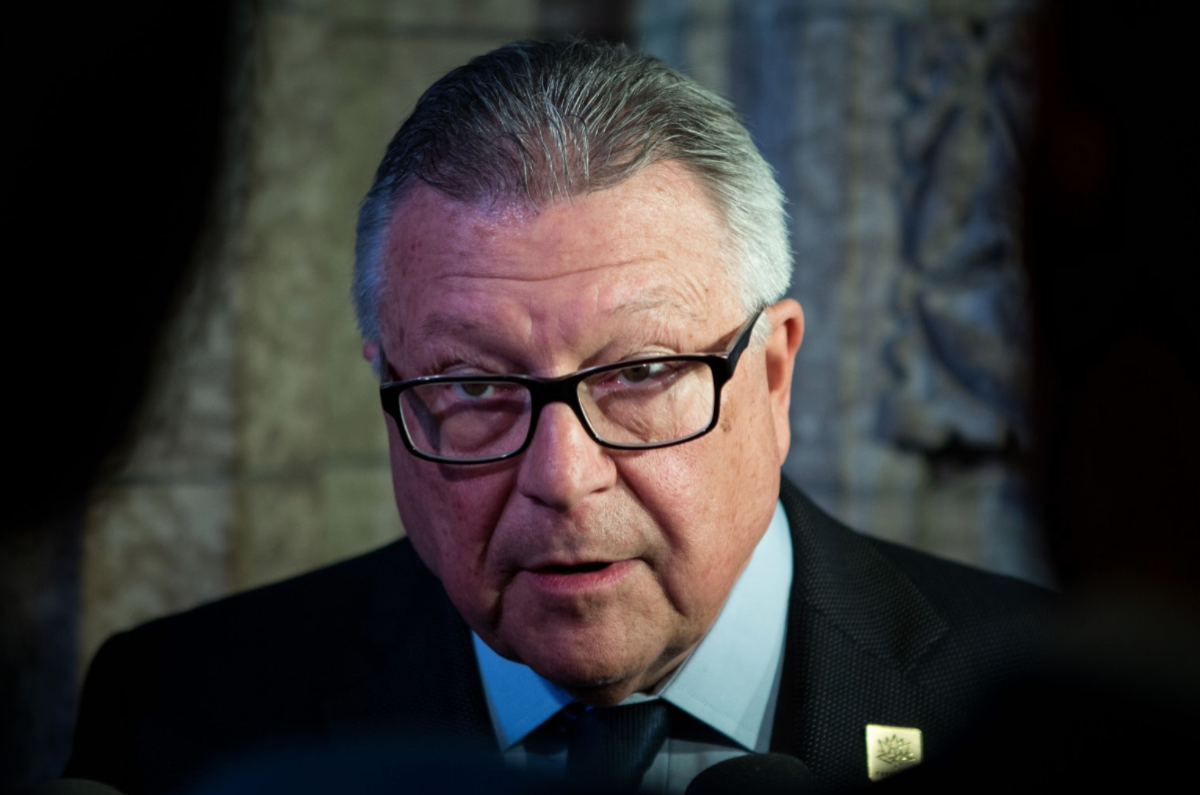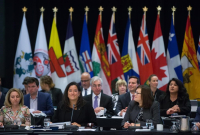Support strong Canadian climate journalism for 2025
Provincial and territorial ministers of justice and public safety are urging the federal government to hurry up on solving court delays and slow down on legalizing pot.
British Columbia's Mike Farnworth said Friday after the two-day political meeting that all provinces are concerned about the Canadian government's refusal to reconsider its deadline of legalizing marijuana by July 1, 2018.
"I would like us to have more time," he said. "But in the case of British Columbia, our job is to make sure that we can put in place that framework, and we're working to that July date."
Quebec Justice Minister Stephanie Vallee said the rush to meet next summer's deadline is interfering with the province's own legislative plans for the fall session.
"It's asking for us to do a lot within a very short period of time," Vallee said. "We also had a legislative agenda that's been pushed because of this. We had no choice.
"I think it's the same for all provinces," she added.
Canada's public safety minister, Ralph Goodale, insisted at the conclusion of the two-day gathering that the July timeline still "appears to be a reasonable one," despite a crescendo of misgivings from other governments, public health experts and police forces.
"We are going to continue to work diligently with all of our partners to make sure that this is done in a thorough, competent, professional fashion," Goodale said. "Public health and safety will always be paramount."
Quebec's public consultations wrapped up two days ago and Vallee said she expects her government to unveil its regulatory framework for marijuana in the coming months.
Alberta is partway through its own public consultation process and Justice Minister Kathleen Ganley said she expects to use the results of a recent outreach initiative to release a draft in the coming weeks.
"That framework will go back out to the Alberta public for further validation," she said. "We're essentially going back and asking, 'Was this the view you took?' "
Besides pot laws, the ministers discussed strategies to address the so-called Jordan decision from the Supreme Court of Canada which imposes strict time limits on criminal prosecutions and has resulted in numerous serious cases being tossed over court delays.
Federal Justice Minister Jody Wilson-Raybould said the areas being considered for reform in an effort to accelerate the trial process include mandatory minimum penalties, the bail system, preliminary inquiries, the reclassification of some criminal offences and judicial case management.
She did not elaborate when asked about specific details or a timeline for those reforms.
"We had very detailed conversations about potential options," Wilson-Raybould said.
"We are going to proceed as quickly as we can," she added, describing court delays as a priority. "I'm hopeful that we can have a package in the near future."
Quebec has borne much of the fallout from the so-called Jordan decision, with more than a thousand applications working their way through the province's court system, including cases of alleged murder and sexual assault, Vallee said.
"We need to do more than just cosmetic changes," she said, emphasizing the need for changes to the criminal code and preliminary inquiries.
Quebec has invested $135 million for more judges, prosecutors and court staff to deal with the backlog, she added.





Comments